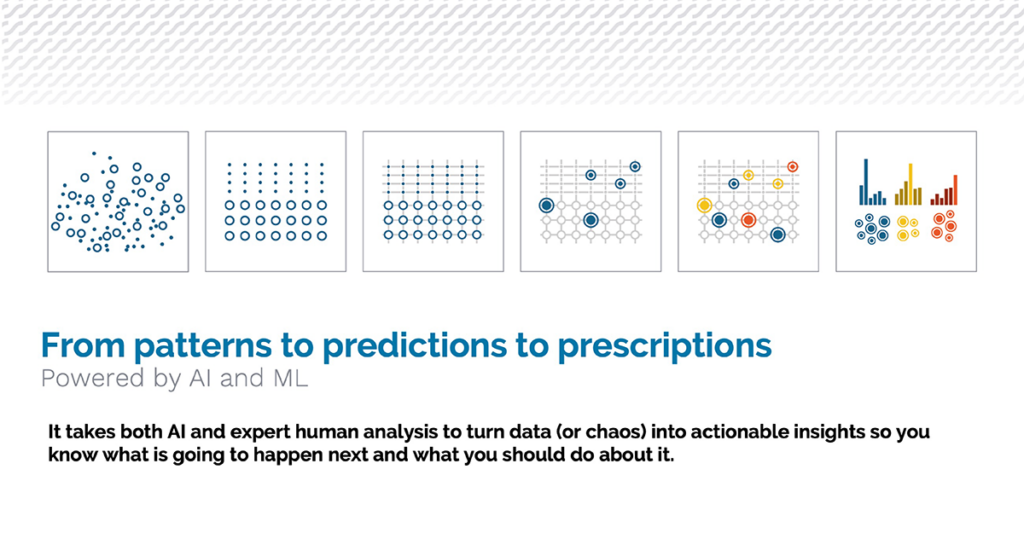Much is made of Artificial Intelligence, from its amazing capabilities to warnings of its potential for world takeover. The reality is that people can use AI as an amazing tool in many ways, including for supply chain success. But a tool is only as good as its user. Therefore, it’s important to understand how you can use cutting-edge AI technology to maximize efficiency and create more effective supply chain management processes.
AI excels in understanding vast amounts of data and identifying non-obvious patterns that humans might overlook, even with manual effort. In the realm of supply chain management, AI, paired with advanced analytics, becomes an invaluable ally at every stage. It helps you to spot potential risks and respond quickly, transforming how you make decisions. No longer do you have to rely on educated guesses about your strategy. With AI handling the heavy lifting, your supply chain management team can focus on making the most effective decisions for your business, ultimately driving success and efficiency.
AI in supply chain
Before you run to your favorite generative AI chatbot and ask it what your supply chain strategy should be, let’s quickly run through what outputs AI can provide for your supply chain management processes. AI tools can provide forecasting models, text generation, classification models, and prescriptive models. This means that AI tools can take data from multiple sources, organize and categorize, and present you with an indication of present, emerging, and potential risks.
Of course, using AI isn’t a guarantee against risks. That said, it can significantly reduce the amount of time it takes to sport a risk and act accordingly. Even if your business faces a disruption, the ability to cut delay times in half is priceless.
Using AI to understand your supply chain
It’s impossible to make effective decisions about your supply chain without understanding it fully, from its inception to endpoint. Mapping out your supply chain that includes not just your suppliers, but also your suppliers’ suppliers, is key to detecting potential disruptions early. While the mapping process is data intensive, AI streamlines the data discovery and analysis to provide you with a comprehensive view into your supply chain.

